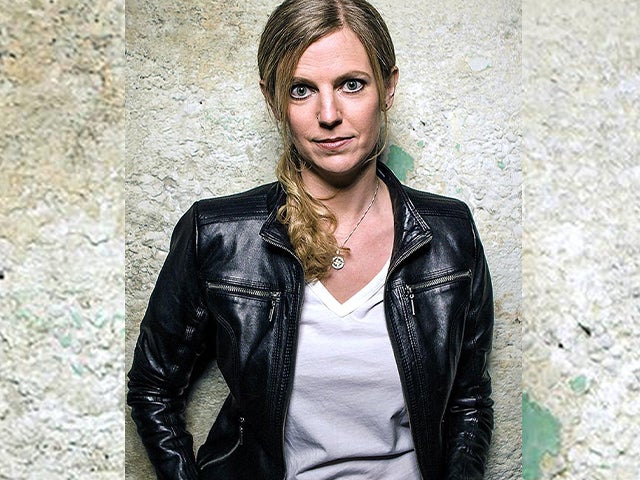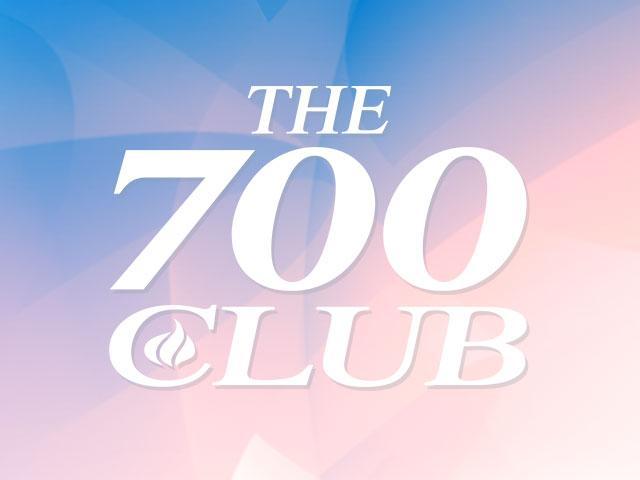Sarah Carlson's Darkest Moments During US Evacuation From Libya
The Beginning
Sarah Carlson was born in Philadelphia while her dad attended seminary. She had 3 brothers, one older, two younger. Her dad pastored in a small rural Ohio town. “People were always stopping over for prayer time and Bible studies.” However, when she was 8, her mother became critically ill with a heart condition. “I think my dad didn’t handle it well and panicked and ended up spending the money for the medical bills on something else.” After her mother recovered, she took the kids, moved back home to Washington state, and divorced her dad. “It was hard. I didn’t understand. I only saw my dad on weekends and a little in the summer. Over time he just disengaged from the family.”
Sarah's mom continued to make the Baptist church the centerpiece of life for her and her children, while she struggled as an underpaid secretary supporting her family. Sarah committed her life to Christ as an 11-year-old at a Christian summer camp. "It was when I first learned truly what it meant to be a Christian and a believer. Faith was everything to me. It was the foundation of my life."
After graduating high school in 1998, Sarah went on to earn an English degree at the University of Puget Sound, and then took a job with the county emergency management team. She had become a certified EMT while in college. “My mom raised us to have hearts for service.” 9/11 became a turning point in her life as she helped FEMA and Search and Rescue teams prepare for work in New York City.
Sarah was soon accepted into the counter-terrorism group at the Defense Intelligence Agency where she volunteered for service in Iraq following the US invasion in December 2003. "I made the choice to go based on my faith...that was where God meant for me to be and I was there for a reason. I knew that if I died, I would be in heaven. It gave me calmness in the middle of the storm."
The CIA
In early 2008, Sarah joined the CIA, where she was assigned to the agency’s counter-terrorism center as an analyst. “I loved my job. It gave me a great sense of purpose in everything I did. It felt good to be involved in so many major historic world events and to know the thing I was doing was helping stop terrorist attacks against the US.”
Following a year of Arabic language studies, Sarah was assigned to the US Embassy in Tripoli, Libya. It was July 2013, almost a year after the terrorist attack on the US mission in Benghazi where 4 US officials, including the ambassador, were murdered. When she arrived, "The country was in total chaos. There was no law enforcement or defined military in Libya at the time. The militias filled that void. There was no controlled traffic; bombed-out villages were everywhere. 'What have I gotten myself into?' The only time I felt secure was in the compound itself. Like Iraq, it helped to know I had made this choice and it was based on my faith and what God wanted me to do with my life. That sense of purpose definitely kept the fear at bay."
For the next year, Sarah provided the ambassador and the embassy staff with threat analysis, as tribal war raged all around them. "It was scary and kept getting worse. There was a deepening divide among the groups operating in Libya and I could see the civil war coming. As the security situation continued to devolve, that heightened the threat against us."
The Embassy Evacuation
A date was set for the evacuation of the entire embassy at the end of July 2014. Logistics and planning for this mission were thorough, however uncertain. They would take their caravan through portions of the Sahara Desert, over a mountain range, into Tunisia. An armed U.S. drone would follow them, and a Marine Osprey watched from a distance. Warring factions, who controlled checkpoints along the way, were bought off for safe passage. It was a logistical challenge that would test the embassy’s battle-hardened security detail.
As the caravan of approximately 150 people pulled out of the compound at 0600 on July 26, 2014, Sarah served as a tactical commander, in charge of protecting those who would be considered high-value targets by terrorist groups. “I truly thought we’d be ambushed on the way out. I didn’t think we were all going to make it to Tunisia alive. I prayed every second of that entire day, ‘Please Lord, lead us to safety.’ It wasn’t until we passed our first checkpoint [that] we all breathed a little easier.”
By late afternoon the caravan passed the last checkpoint, which was the border crossing out of Libya into Tunisia. "It was a huge relief to make it there safely, but we still had a long way to go. Nevertheless, I thanked God for a safe passage." Embassy staff, including the Ambassador, refused to share food and water with the security detail and CIA operatives, like Sarah. "It was a huge deal at the time that they wouldn't give me water or food. It was pretty devastating when you'd just risked your life to get them to safety. It made me feel used and treated poorly."
Sarah admits that she started writing the book in case she was called to testify. “Truly I thought we were going to be ambushed. I didn’t think we would all make it out alive, so I started taking notes in case I was called to testify,” she explains. When submitting the manuscript to the CIA, they cleared the book twice but took it back. This led to a legal battle. In the end, Sarah is able to share her story. She hopes the book highlights the many people risking their lives to serve their country who oftentimes go unnoticed.
A New Life
Once back in the US, Sarah spent the next year at CIA headquarters analyzing terrorist threats to our country. However, in 2015 she left the agency. “Physically – I was having digestive problems. I picked up two different parasites. Mentally – I was dealing with PTSD from my time in Libya.” For the next two years, while she waited for the CIA to clear her resume, Sarah worked on her book, just published entitled In the Dark of War – A CIA Officer's Account of the US Evacuation from Libya. Today, she is the Operations Manager for Pierce County in Washington State. “God has a path for us and I would encourage people to be open to that. Know that things happen for a reason and what I went through in Libya, it was about what God needed me to do for those people there. I know that He had his hand on that evacuation."





